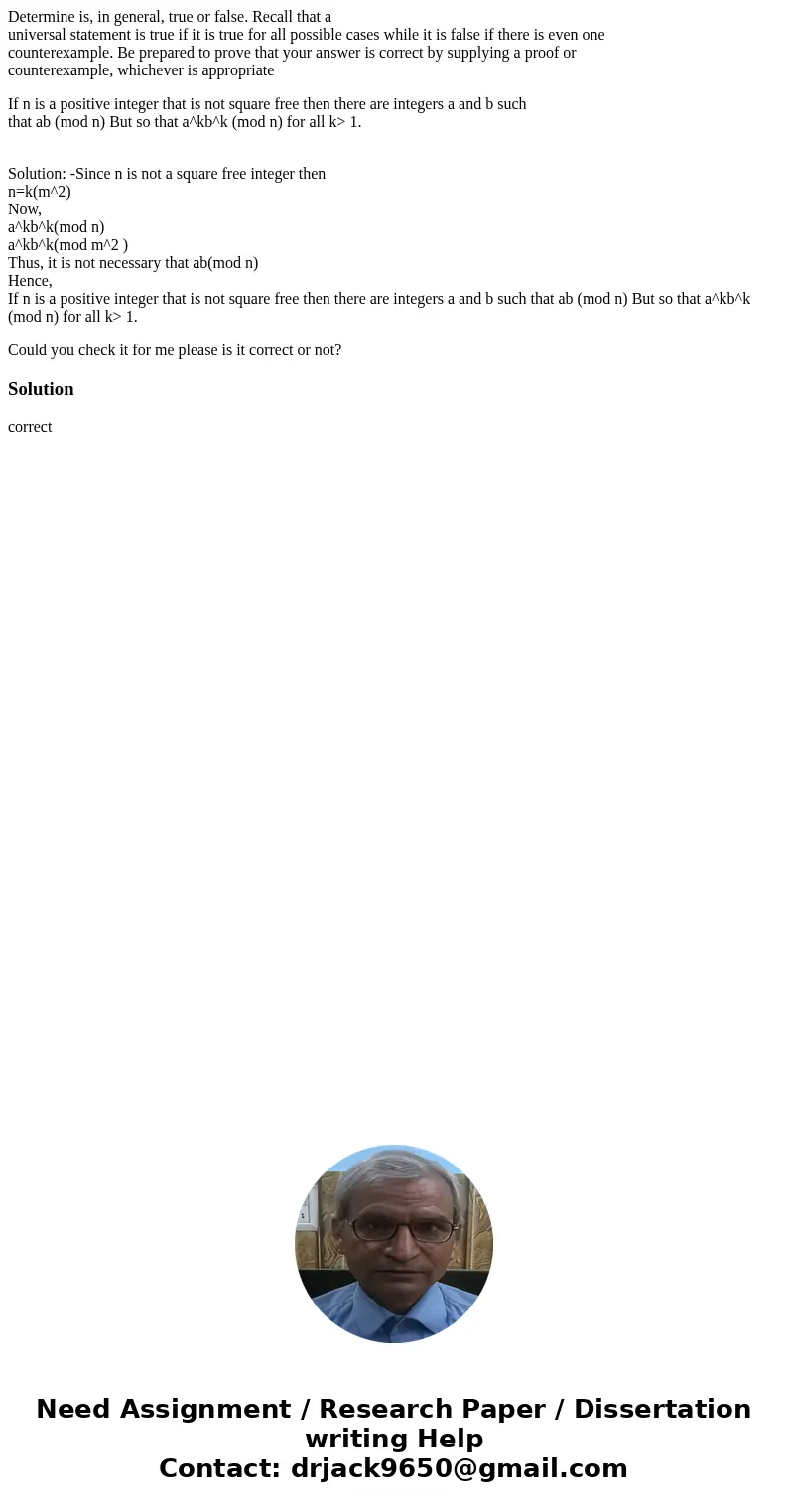Determine is in general true or false Recall that a universa
Determine is, in general, true or false. Recall that a
universal statement is true if it is true for all possible cases while it is false if there is even one
counterexample. Be prepared to prove that your answer is correct by supplying a proof or
counterexample, whichever is appropriate
If n is a positive integer that is not square free then there are integers a and b such
that ab (mod n) But so that a^kb^k (mod n) for all k> 1.
Solution: -Since n is not a square free integer then
n=k(m^2)
Now,
a^kb^k(mod n)
a^kb^k(mod m^2 )
Thus, it is not necessary that ab(mod n)
Hence,
If n is a positive integer that is not square free then there are integers a and b such that ab (mod n) But so that a^kb^k (mod n) for all k> 1.
Could you check it for me please is it correct or not?
Solution
correct

 Homework Sourse
Homework Sourse